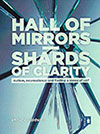
|

|
|

|
 Home
Home  Autsim
Autsim  Responsive
ResponsiveCommunication   Intensive Interaction
Intensive Interaction  Media Articles
Media Articles  Feedback
Feedback  Simple Handouts
Simple Handouts  References & Links
References & Links  Films
Films  Contact Me
Contact Me |
AutismIn the UK, one in one hundred children is diagnosed with autistic spectrum disorders, or in the USA, the figure is one in sixty-eight. (The diagnostic criteria used are different). The problem is caused by nerves in the brain that do not link up in the normal way during development of the nervous system (Disrupted Cortical ConnectivityRajesh K, Kana and Moore S. Moore �Disrupted Cortical Connectivity Theory as an explanatory model for autism spectrum disorders� Physics of Life Reviews Vo l8 Issue 4 pp 410-137 )1. They can be over-connected (during information processing too many nerves fire off), or under-connected (messages are not reaching the correct destination), or messages may be sent to the wrong part of the brain. In order to avoid being drawn into sensory overload, the child or adult retreats into repetitive behaviours or special interest activities, isolating themselves from disturbing input. Here they at least focus on something that makes sense. Brain processing disturbances involve confusion, pain and heat and are described as being terrifying. The child may run away, lash out, retreat into shut-down or self injure. Rather than understanding that the child�s brain is experiencing extreme painful sensory overload (described as, �feeling as if they are being attacked�), those of us who are not on the autistic spectrum see the child�s behaviour as it affects us: a child is said to be having a tantrum. The child or adult is experiencing �meltdown�, fragmentation�, more properly known as an �autonomic storm� (the outcome of a rise of activity in that part of the autonomic nervous system known as sympathetic nervous system). While their sensory organs - sight, sound, balance and feeling (both touch and internal sensations such as the physical messages from their nerves and muscles known as proprioceptive messages) may work in the same way as those of us who are not on the spectrum, children and adults with autism find it difficult to process the information coming into their brain. This applies to both the impressions they receive from the world outside - and also the signals they get from sensations that are generated in the body, such as messages from their nerves and muscles and also emotional sensations. If there is too much in the way of floating and unprocessed images sounds and sensations, the brain may interpret this sensory overload as threatening, to the point where it triggers the body's self-defence system. Some people with autism have a particular problem with pain caused by the trigeminal nerve in the head, which feeds the face and jaw. They push their fingers into the angle of the jaw below the ear-lobe, chew a lot, appear to have outbursts of severe pain that cannot be attributed to obvious causes. The may pull the hair out at the front of the head or rub their noses. This needs to be investigated by a neurologist as it may well be they have Trigeminal Neuralgia � particularly if someone in the family has extremely severe headaches. Contrary to previous ideas, it does occur in people under fifty, even down to
infants.
See: Caldwell P. The Anger Box Chap 2.
1. (Disrupted Cortical Connectivity Rajesh K, Kana and Moore S. Moore �Disrupted Cortical Connectivity Theory as an explanatory model for autism spectrum disorders� Physics of Life Reviews Vol 8 Issue 4 pp 410-137) |
Recent and Upcoming Work
|
|
|
|
The text of this page is available for modification and reuse under the terms of the Creative Commons Attribution-Sharealike 3.0 Unported License
and the GNU Free Documentation License (unversioned, with no invariant sections, front-cover texts, or back-cover texts). |
